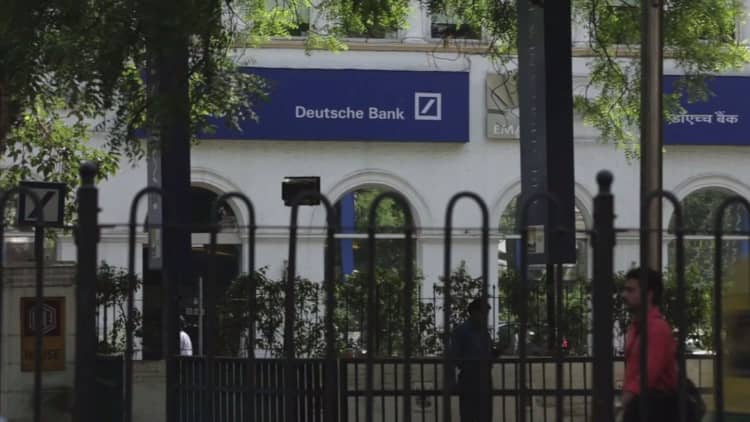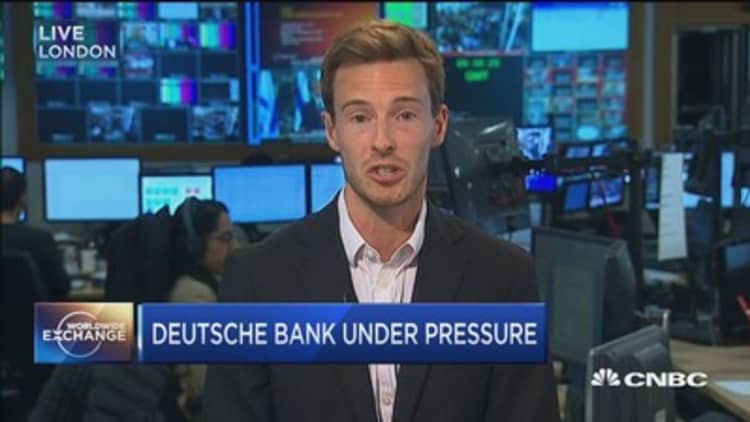
Mounting speculation over the fate of Deutsche Bank and whether the German lender requires a state bailout is "misplaced," according to risk consultancy Eurasia Group, and won't happen for a number of political – let alone financial – reasons.
"Speculation about a Berlin bailout of Deutsche Bank is misplaced, and misunderstands European Union (EU) rules on bank rescues, politics in Berlin and the capital situation of the bank," Eurasia Group's Europe research director Mujtaba Rahman and analysts Federico Santi and Charles Lichfield said in a note on Thursday.
Concerns over Deutsche Bank's future have dominated market sentiment in Europe and beyond this week. The health of the German lender came under scrutiny after the U.S. Justice Department suggested it pay $14 billion to settle a number of investigations related to mortgage securities.
This led to speculation over whether they German government would step in and support the ailing bank, whose potential downfall could have wider repercussions for the global banking system.
'Kill Merkel politically'
But Eurasia Group's analysts said that "despite all of this noise, a German government bailout of Deutsche Bank is extremely unlikely" for several reasons.
Firstly, they said a bailout would not be politically expedient for German Chancellor Angela Merkel, who could run for election again in 2017. Merkel has yet to say if she will run for a fourth term, but her party has suffered a loss of support due to Merkel's policies on refugees.
As such, any bailout using taxpayers' money could bolster public support for the Alternative for Germany (AfD) party – a right-wing populist and Euroskeptic movement that has gained votes in recent state elections – according to Eurasia Group.
"(A bailout) would drive more voters into the arms of the AfD. There is already growing doubt that Merkel will run again as CDU leader and Chancellor, following her CDU's defeat in Mecklenburg-Vorpommern and Berlin. An injection of public money, ahead of critical elections next year, would kill Merkel politically. Less damaging political alternatives are therefore much more likely," the analysts noted.
Bail-ins not bailouts

Eurasia Group noted that a "bail-in" was a far more likely scenario as new European banking rescue rules require creditors to take losses before public money is used to save financial institutions.
"Even in a worst case scenario of a $14 billion U.S. Department of Justice fine, capital shortfalls would be covered by bail-in, obviating the need for German taxpayer money," Rahman, Santi and Lichfield said.
Deutsche Bank could convert its estimated 12 billion euros worth of "CoCo" bonds to cover the fine, Eurasia said. Contingent convertible bonds – or CoCos – are converted into equity once a specified event has occurred (if the bank were to undergo a precautionary recapitalization, for instance).
However, they noted that a bail-in could also "create political problems for Merkel."
"It's highly unclear which investors holds these CoCo financial instruments. If it is pension funds or insurers, for example, that will create blowback for the government, especially as these institutions are already reeling from the effects of low interest rates," they said.
"Next, if CoCos are converted to shares, this operation would 'dilute' existing shareholders. Understanding who Deutsche's shareholders are will therefore also be important for the German government, as this could create political headwinds too."


